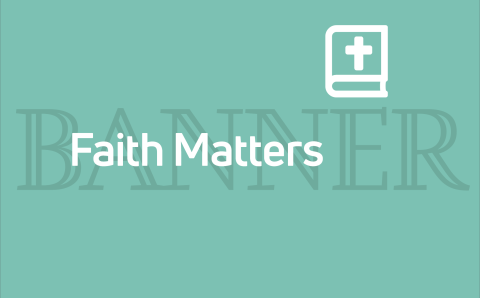These are the days of darkness in the Northern Hemisphere. In Vancouver, also known as the “Wet Coast,” the relentless rain of the winter months lengthens the shadow of night. Weeks can go by in which the clouds refuse to share the sky with the sun, and dampness partners with darkness to make the spirit sad. People with Seasonal Affective Disorder (SAD) find these long droughts of sunlight cause a depression to creep over the soul.
Darkness has a bad reputation in most circles. In the dark we stumble, grope, hide, and tune out. Night is a time to retreat, lock the doors, and pray for safety. Even the Bible uses darkness as a way to describe the presence of evil or even as a metaphor of hell.
As believers with a Reformed bent, however, we testify that there is no cubic centimeter of this universe over which God does not rule in love and faithfulness. We refuse the dualism between day and night, light and darkness—the idea that one is good and the other evil.
Still, we are suspicious of the night: can God be found in the dark places? Can we lean into the blackness that surrounds us and somehow find comfort, even peace?
All is not light. There is a rhythm to our life like the rhythms of the planets and stars, and as we journey the times of light come and go. Musician Bruce Cockburn describes this in his song “Pacing the Cage”:
Even the best map will not guide you You don’t know what’s around the bend Sometimes the road leads to dark places Sometimes the darkness is your friend.
Cockburn echoes the psalms here. At the end of Psalm 88, a shadowy psalm to be sure, the poet says, “You have taken my loved ones and companions from me. The darkness is my closest friend.”
What could be friendly about darkness? Well, let me suggest a few things, as in times of trouble I have found comfort in the night. If you ever slip outside into the black envelope of midnight and stroll alone along the sidewalks, you might get a sense for it. There is first of all a deep quiet that rules the night. There is a moratorium on the hustle and hum of day, and our thoughts roam more freely. We are closer to ourselves in the dark. We shift into a heightened sense of awareness as our favorite sense, vision, fails us. Our truest self—our vulnerable self—rises to the surface.
Light may activate us, but the dark holds us, like a womb. It lingers with us. If you listen closely, it may whisper to you words of deep empathy. No one knows abandonment like darkness. It is, in its very nature, an absence—an absence of light—and with those in its company, it waits.
It’s OK to be sad, or even to have SAD. If our case is not too severe, we might find that accepting the darkness can be a step toward the light. Because we need light like we need vitamins. Still, darkness is not all darkness. We might acquaint ourselves with darkness in the same way St. Francis befriended fellow creatures sun, moon, and wolf. He called them Brother and Sister—siblings in God’s great family of life. In this way, darkness, too, is a brother, a companion to Sister Moon. Brother Darkness may gift us with our true self, hold us in our abandonment, and wait with us for the morning.







